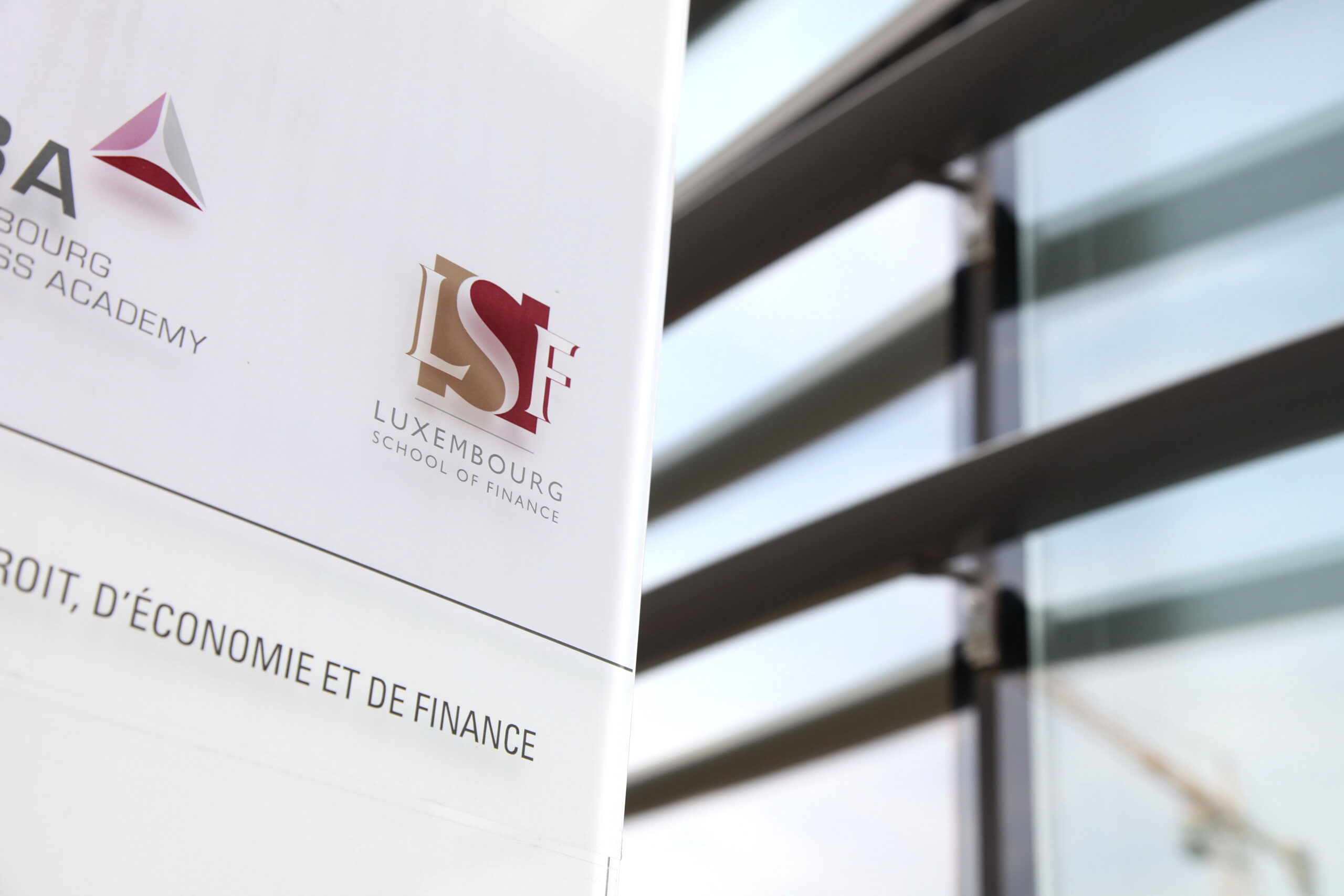Over the last academic year, the master’s programmes offered by the Luxembourg School of Finance (LSF) have been substantially reformed with the aim of increasing the number of easily employable graduates and adapting the study contents to the current needs of the Luxembourg financial industry.
The goal of our master’s programmes is therefore to educate highly-skilled workers in relevant fields for the local society. This is achieved by streamlining our teaching offer to meet market needs and educate high school graduates from Luxembourg and the Greater Region, as well as international bachelor graduates who wish to follow postgraduate programmes and who will be useful high skilled additions to Luxembourg’s workforce as well as Luxembourg’s ambassadors in their home country.
International standards
A working group, chaired by the academic vice-dean of our faculty Prof. Anke Müssig and consisting of LSF professors and representatives from the main financial associations ABBL, ACA and ALFI, as well as an external academic financial expert, decided on the main directions of the reform that was presented to the financial industry in January 2019 and was also approved by the Foundation for International Business Administration Accreditation (FIBAA).
For the programme’s new structure, the twenty five best finance programmes of leading business schools and universities were analysed with regard to structure and content. The new Master’s programmes have been tailored to meet this top-level international standard.
Five-year study programme in finance
Following the reform, LSF will now offer a Master of Science in Finance and Economics with tracks in Risk Management, Investment Management and Banking and a more professional oriented Master in Wealth Management.
Both masters are two-year masters. Together with the Bachelor in Economics and Finance that will be run by our colleagues from the economics department from September 2020 onwards, the masters will offer a complete five-year study programme in finance. This will allow non-European students to spend enough time in Luxembourg to understand the local financial centre and to acquire the necessary language skills to be fully employable.
The structure of the Master of Science in Banking and Finance makes it possible to react quickly to innovative topics emerging in the market by providing “Incubator Courses” in the second year of studies that can then be extended into full tracks in order to equip students with particular knowledge and competencies. Possible future tracks are, for instance, sustainable finance, digital finance, big data in finance, macro prudential regulations or actuarial sciences.
Tailor-made programme in wealth management
The Master in Wealth Management has an even greater professional orientation. It is a tailor-made programme dealing with all aspects of the Luxembourg wealth management centre, from financial knowledge to regulations and client management. This makes it a unique study programme in the world. Because of its professional orientation, roughly half of the courses are taught by practitioners from Luxembourg’s financial centre. The curriculum combines traditional finance subjects with person-, legal- and tax-centric subjects, such as client relationship management, estate planning, ethics and international taxation, and is open to students with a background in finance or economics, but also to students with a degree in law or psychology. The Master in Wealth Management is therefore offered as a separate stand-alone study programme.
Aligned interests
The financial sector, as represented by its professional bodies, expects the LSF to make full use of its collaboration with the industry to prepare students for the job market and offer them the best chances of entering it. The new study programmes offer an internship period with the goal of creating and sustaining mutually beneficial relationships and students are encouraged to write their master theses in collaboration with the firms where they conduct their internship.
A closer collaboration with ABBL with regard to finding internship firms is envisaged and the LSF will soon hire an Outreach Officer who will help students in that regard.
The new programme offering will better meet the needs of the job market and will, therefore, enhance the students’ employability, while also equipping them with the requisite tools to pursue further academic study, thereby enabling them to access programmes in the third cycle of higher education. The desired educational goals of the new programmes are to equip students with academic proficiency, to ensure high employability in the Luxembourg and European/international labour markets, to guarantee personal development and to encourage students to make further social and societal contributions.
The new Master programmes of the LSF reflect a unique opportunity both for the university and the industry to align the interests of academics and professionals working in the field of finance in Luxembourg.
